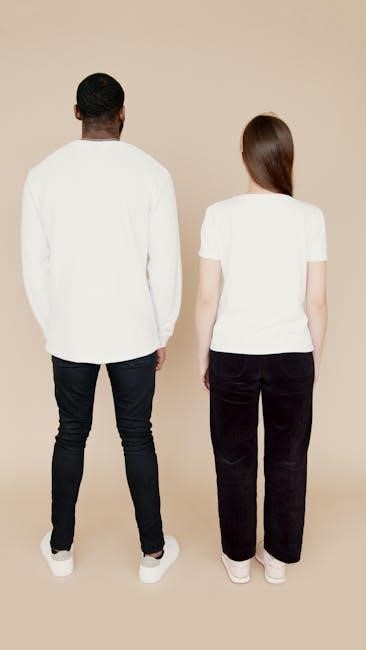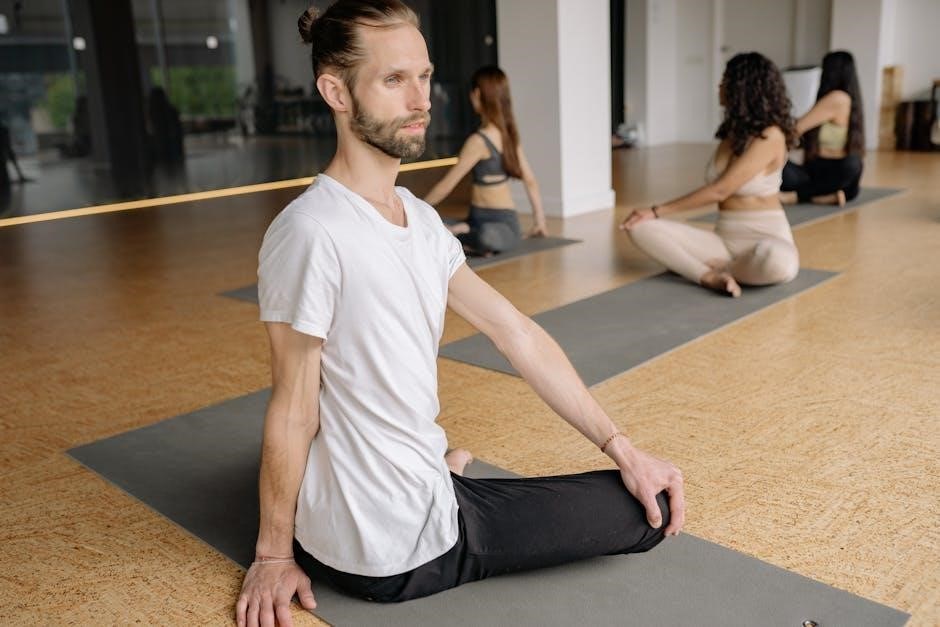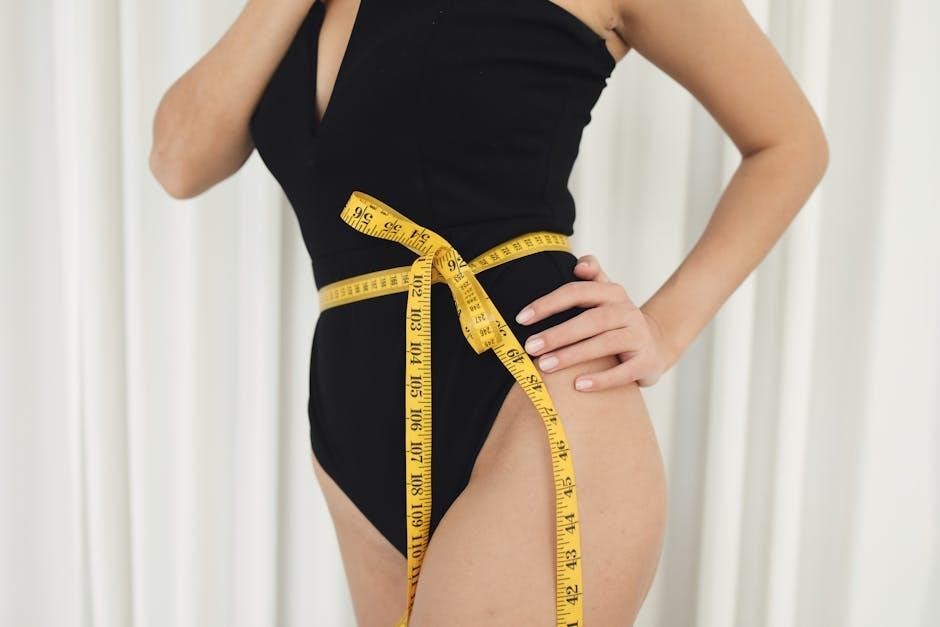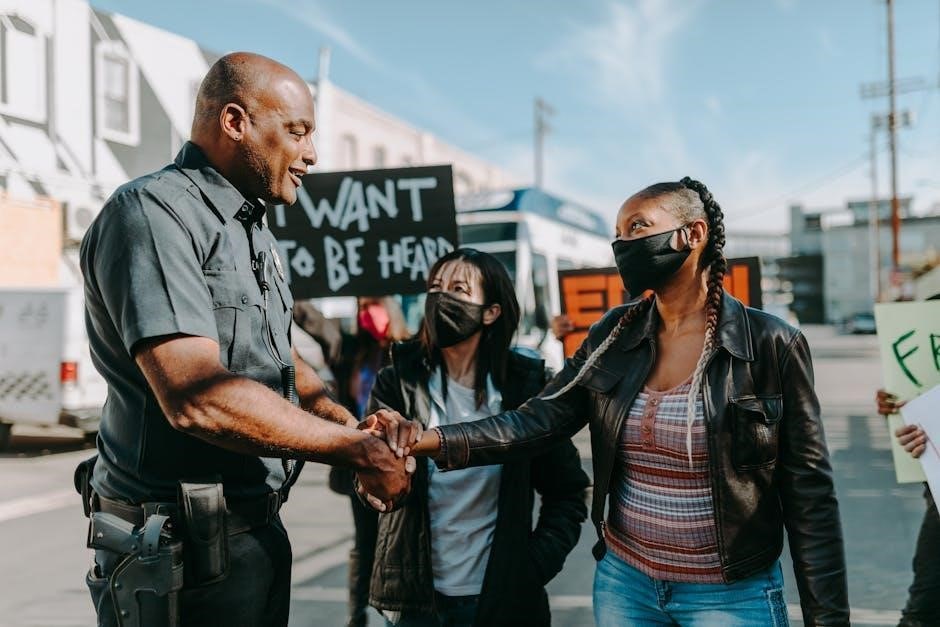This guide explores the Black female body through a Black feminist lens. It examines body politics, beauty standards, and historical devaluation, using intersectionality. Ultimately, it is about liberating the Black female body!

Core Concepts of Black Feminism
Black feminism analyzes sexism’s impact on Black women, addressing racism within feminism. Key concepts include intersectionality, examining overlapping identities. Body politics, control, and the devaluation of Black womanhood are also central to Black feminism.
Intersectionality and Identity
Intersectionality, a core tenet of Black feminism, provides a framework for understanding how various aspects of identity, such as race, gender, and class, intersect to create unique experiences of oppression and discrimination. It acknowledges that Black women face challenges that are distinct from those experienced by white women or Black men, due to the overlapping nature of their marginalized identities.
This framework allows for a nuanced analysis of power dynamics and social inequalities. It recognizes that a Black woman’s experience cannot be solely attributed to her race or gender, but rather to the complex interaction of both, along with other factors like sexual orientation, ability, and socioeconomic status.
By studying the relationships along multiple axes of identity, Black feminism seeks to dismantle systems of power and privilege that perpetuate inequality. This approach emphasizes the importance of recognizing and valuing the diverse experiences of Black women, while promoting solidarity and collective action.
Body Politics and Control
Body politics, a crucial aspect of Black feminism, examines how power structures control and regulate women’s bodies, particularly those of Black women. It highlights the ways in which societal norms, laws, and cultural expectations dictate how women should look, behave, and use their bodies. This control often manifests in the form of restrictive beauty standards, reproductive regulations, and violence against women.
Black feminists argue that the control of Black women’s bodies has a long and oppressive history rooted in slavery and systemic racism. During slavery, Black women’s bodies were viewed as property and subjected to forced labor, sexual exploitation, and reproductive control. These historical injustices continue to shape the experiences of Black women today, as they face ongoing challenges related to body image, healthcare access, and reproductive rights.
Black feminism advocates for bodily autonomy and self-determination, empowering Black women to reclaim control over their bodies and challenge oppressive systems.
Historical Context: The Black Female Body
Understanding the Black female body requires exploring its historical context. Slavery and devaluation have shaped perceptions. Controlling images like Jezebel, Mammy, and Sapphire perpetuate harmful stereotypes about Black women.
Slavery and Devaluation of Black Womanhood
The roots of the Black feminist perspective on the body are embedded in the history of slavery. During this era, Black women’s bodies were devalued and exploited. They were seen as property, not as individuals deserving of respect and autonomy. This dehumanization extended beyond physical labor, impacting their social and cultural standing.
The institution of slavery stripped Black women of their rights. They routinely were denied agency over their reproductive health. The commodification of their bodies as breeders further solidified their status as objects of economic value. This legacy continues to influence perceptions of Black womanhood.
Black feminist theory argues that American slavery underlies the devaluation of Black women. Examining this history reveals the systemic oppression and exploitation that have shaped their experiences and continue to inform body politics today.
Controlling Images: Jezebel, Mammy, Sapphire
Black women have historically been subjected to harmful stereotypes. These controlling images, like the Jezebel, Mammy, and Sapphire, perpetuate negative perceptions. They impact how Black women are viewed and treated in society. These images have far-reaching consequences. They influence everything from personal interactions to public policy.
The Jezebel stereotype portrays Black women as hypersexual, manipulative, and uncontrollable. The Mammy image depicts them as desexualized, selfless caregivers devoted to white families. The Sapphire stereotype portrays them as angry, aggressive, and emasculating.
These stereotypes serve to justify the oppression and exploitation of Black women. They reinforce power imbalances and limit their opportunities. These images contribute to the devaluation of Black womanhood. Understanding these harmful representations is crucial to dismantling them and promoting more authentic and empowering narratives.
Body Image and Beauty Standards
This section analyzes mainstream beauty standards’ impact on Black women. It explores the internalization of European ideals. It also covers combating body image distortion to promote self-acceptance and empowerment.
Impact of Mainstream Beauty Standards
Mainstream beauty standards, often rooted in Eurocentric ideals, significantly impact Black women’s body image. These standards, promoted through media and culture, prioritize whiteness, thinness, and specific physical features. This creates pressure on Black women to conform, leading to dissatisfaction with their natural features and bodies.
The constant exposure to these narrow ideals can foster feelings of inadequacy and self-doubt. Black women may feel compelled to alter their appearance through chemical relaxers, skin bleaching, or even surgery, to align with the dominant beauty narrative. This pursuit of an unattainable standard can have detrimental effects on self-esteem and mental health.
Moreover, the lack of representation of diverse Black bodies in mainstream media reinforces the message that Black beauty is somehow less desirable or valuable. This erasure contributes to the marginalization of Black women’s experiences and perpetuates a harmful cycle of self-objectification and body shame.
Internalization of European Beauty Standards
The internalization of European beauty standards is a significant issue for Black women. Constant exposure to these standards can lead to a belief that white features are superior. This internalization manifests as a desire to alter natural features to resemble European ideals. This can include straightening hair, lightening skin, and pursuing specific body types.
Black women attending predominantly white colleges are particularly vulnerable. The lack of representation and the prevailing cultural norms can amplify the pressure to conform. The internalization of these standards can lead to body image dissatisfaction, low self-esteem, and mental health issues.
Combating this requires a conscious effort to deconstruct internalized biases. It involves celebrating Black beauty in its diverse forms and challenging the notion that European features are the epitome of beauty. This is a crucial step towards self-acceptance and empowerment for Black women.
Combating Body Image Distortion
Combating body image distortion requires a multifaceted approach, particularly for Black women facing unique societal pressures. One method involves actively shifting perceptions of beauty away from Eurocentric ideals. This means embracing and celebrating the diverse range of Black features and body types.
Individually, women can challenge distorted self-perceptions by focusing on inner qualities and accomplishments. This involves cultivating self-compassion and practicing positive self-talk. It’s crucial to recognize that media portrayals often present unrealistic and unattainable standards.
Collectively, communities can create spaces that promote body positivity and self-acceptance. This includes challenging harmful stereotypes and celebrating diverse representations of Black women in media. Education and awareness are essential tools in dismantling the systems that perpetuate body image distortion, fostering a more inclusive and accepting society.

Social Media and Body Image Pressures
Social media presents unique body image pressures, especially for Black women navigating a digital landscape often dominated by Eurocentric beauty standards. Platforms can perpetuate unrealistic ideals, leading to comparisons and feelings of inadequacy. Young Black women face intense scrutiny, bombarded with filtered images and curated portrayals of perfection.
However, social media also offers spaces for body positivity and diverse representation. Black influencers and activists are challenging mainstream narratives, promoting self-acceptance and celebrating different body types. These online communities provide support, encouragement, and a platform to reclaim beauty standards.
Navigating social media requires critical awareness and mindful engagement. It’s essential to curate feeds, unfollowing accounts that promote negativity or unrealistic expectations. Focusing on content that celebrates diversity and promotes self-love can foster a healthier relationship with body image in the digital age.

Black Feminist Aesthetic
The Black feminist aesthetic is a powerful expression of self-love, resistance, and cultural pride. It challenges dominant beauty standards and celebrates the diverse forms of Black beauty. This aesthetic prioritizes authenticity, individuality, and the reclamation of marginalized identities. It embraces natural hair, diverse body types, and styles that reflect Black history and culture.
The Black feminist aesthetic is not about conforming to trends but about creating a personal style that empowers and affirms. It is a visual representation of Black feminist values, such as self-determination, community, and resistance to oppression. It reclaims narratives and redefines beauty on Black women’s own terms.
From natural hairstyles to clothing choices that honor heritage, the Black feminist aesthetic is a declaration of self-worth and a celebration of the unique beauty and strength of Black women. It is a powerful tool for self-expression and social change.
Liberating the Black Female Body
Liberating the Black female body is a central tenet of Black feminism, involving the dismantling of oppressive systems that control and devalue it. This liberation encompasses reclaiming autonomy over reproductive rights, challenging harmful beauty standards, and rejecting controlling images like the Jezebel, Mammy, and Sapphire stereotypes.
It also means addressing the historical trauma inflicted by slavery and its lasting impact on Black women’s bodies. This includes fighting against medical racism and ensuring access to quality healthcare. Black feminist thought asserts that Black women’s bodies are not inherently hypersexual or deviant but are complex and worthy of respect.
Liberation involves embracing body positivity, celebrating diverse body types, and rejecting the internalization of European beauty standards. It’s about creating spaces where Black women can feel safe, empowered, and free to express themselves authentically, without fear of judgment or violence.
Black Women and Weight-Related Anxieties
Black women, while sometimes perceived as immune to anxieties surrounding thinness, experience unique weight-related pressures shaped by intersecting factors. Mainstream beauty ideals, often prioritizing thinness and whiteness, can contribute to body dissatisfaction. However, cultural expectations within Black communities also play a significant role.
The “thickness” ideal, while seemingly positive, can create its own anxieties, particularly when it becomes a restrictive standard. Black feminist scholars argue that these anxieties are further compounded by historical and societal factors, including the legacy of slavery and the controlling images that have historically objectified Black women’s bodies.
Weight-related anxieties can also be influenced by socioeconomic factors, access to healthy food, and culturally relevant healthcare. Black feminism seeks to address these complex intersections, promoting body acceptance and challenging the narrow definitions of beauty that fuel these anxieties. This involves fostering self-love, celebrating diverse body types, and prioritizing health and well-being over unrealistic ideals.

Black Feminist Model of Body Image
The Black Feminist Model of Body Image offers a framework for understanding Black women’s experiences with their bodies. This model acknowledges the unique pressures and complexities arising from the intersection of race, gender, and other social identities.
It emphasizes the importance of considering historical context, particularly the legacy of slavery and controlling images, which have shaped societal perceptions of Black female bodies. The model recognizes that Black women often navigate conflicting messages about beauty and body ideals, both within and outside of their communities.
Central to this model is the concept of resistance. Black women actively resist dominant beauty standards by embracing diverse body types, challenging Eurocentric ideals, and celebrating their unique cultural aesthetics. The Black Feminist Model of Body Image promotes self-definition, agency, and empowerment, encouraging Black women to define beauty on their own terms. It also highlights the importance of community support and collective action in challenging systemic oppression and promoting body positivity.
This exploration of the Black female body through a Black feminist lens reveals a complex tapestry of historical trauma, societal pressures, and resilient self-definition. We’ve examined the impact of controlling images, the internalization of Eurocentric beauty standards, and the unique anxieties surrounding weight and body image that Black women face.
This journey underscores the urgent need for a Black feminist approach to body image, one that centers the experiences and perspectives of Black women themselves. It is a call to dismantle oppressive systems, challenge harmful stereotypes, and celebrate the diverse beauty and strength of Black womanhood.
By embracing intersectionality, promoting self-love, and fostering community support, we can empower Black women to reclaim their bodies, define their own narratives, and live authentically, free from the constraints of societal expectations. This is not just a conclusion, but a continued commitment to liberation and empowerment.
